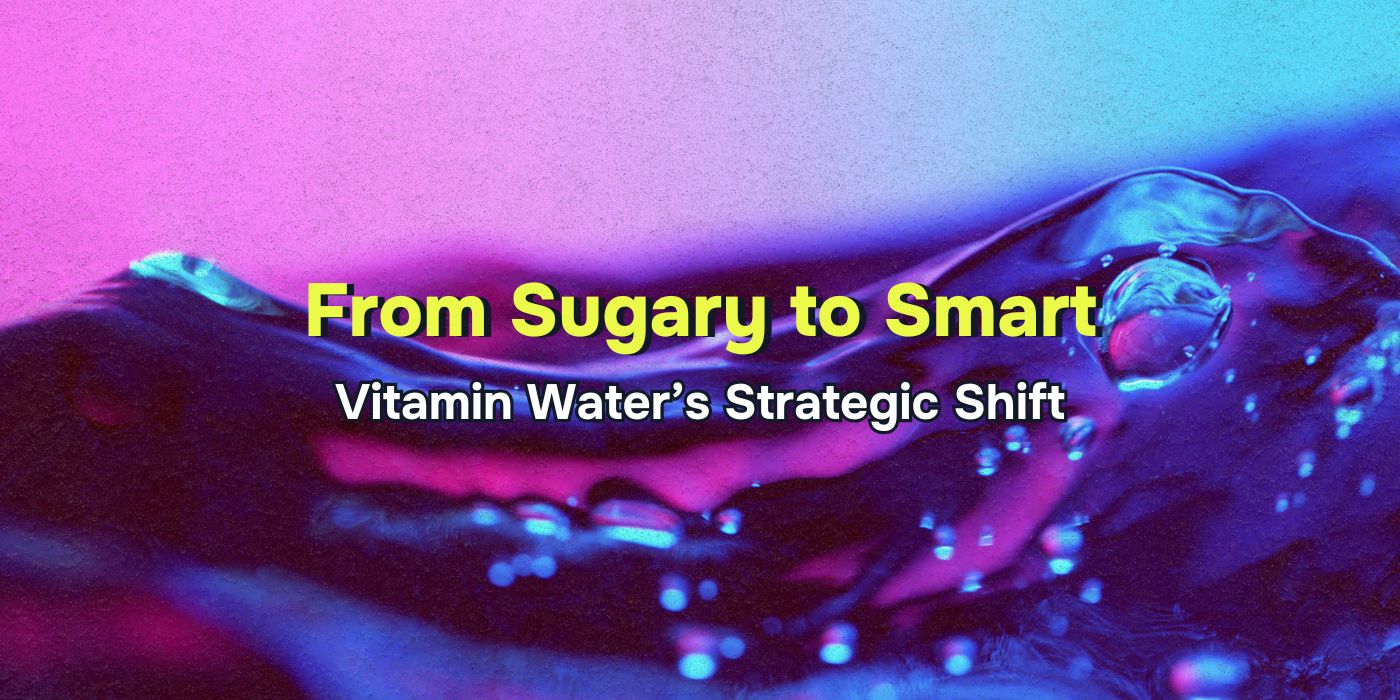TL;DR
Vitamin Water rose to fame as a trendy, vitamin-infused alternative to sugary drinks, backed by celebrity endorsements and colorful branding. However, as consumer preferences shifted towards healthier, low-sugar options, the brand faced criticism for its sugar content and perceived health claims. In response, Vitamin Water reformulated its products, introduced low-sugar versions, and revamped its marketing strategy to align with the wellness movement. Its journey showcases the importance of adaptability, transparency, and evolving with consumer demands in a competitive market.
Vitamin Water, once a trendy beverage icon, has experienced a journey marked by both meteoric rise and challenging adaptation. Known for its colorful branding and celebrity endorsements, the drink quickly became a staple for those seeking a tastier alternative to water with added nutritional benefits. However, as consumer preferences shifted towards more natural and less sugary options, Vitamin Water had to adapt to remain relevant. This blog explores the rise, fall, and strategic shift of Vitamin Water, providing insights into how brands can stay competitive in a rapidly evolving market.
The Birth of a Trendy Beverage
Vitamin Water was launched in 1996 by Glacéau as a new category of “enhanced water.” It filled a unique niche between plain water and traditional sugary sodas or sports drinks. With a focus on hydration and added vitamins, Vitamin Water positioned itself as a healthier, more flavorful alternative for those looking to boost their daily nutrient intake. The brand’s vibrant and visually appealing packaging, coupled with clever product names like “Revive” and “Focus,” added to its allure. Vitamin Water’s marketing was equally colorful, heavily relying on celebrity endorsements, including high-profile partnerships with stars like 50 Cent, who not only promoted the drink but became financially invested in its success.
Market Success and Consumer Appeal
Targeting young, active, and health-conscious consumers, Vitamin Water successfully rode the wave of the early 2000s health craze. It marketed itself as the “cool” alternative to sugary sodas and traditional sports drinks, emphasizing hydration with an added nutrient boost. This appeal led to rapid growth in sales and market penetration, catching the eye of beverage giant Coca-Cola, which acquired Glacéau for $4.1 billion in 2007. With Coca-Cola’s distribution network and marketing muscle, Vitamin Water became a household name, establishing itself as a leader in the enhanced water category.
The Market Shift: From Sweet to Subtle
Changing Consumer Preferences
As the 2010s approached, the health and wellness landscape began to evolve. Consumers started to scrutinize the ingredients in their favorite beverages, becoming more aware of hidden sugars and artificial additives. A growing demand for organic, natural, and low-calorie products emerged, driven by a more informed and health-conscious consumer base. The once-revered sugary Vitamin Water flavors began to fall out of favor as people gravitated towards simpler, more transparent hydration options like coconut water, plant-based waters, and electrolyte-infused drinks.
The Fall from Favor
Vitamin Water faced backlash as its perceived health benefits came under scrutiny. Lawsuits and criticism arose, challenging the brand’s claims of being a “healthy” beverage, with some alleging that it was as sugary as a typical soda. This negative publicity, combined with shifting consumer attitudes, impacted Vitamin Water’s sales and reputation. Suddenly, the brand that once symbolized cool, healthy hydration had to grapple with declining consumer trust and market share.
Adaptation and Reinvention
Reformulating the Product
Recognizing the need to align with the new market trends, Vitamin Water initiated a significant overhaul. The company introduced new, low-sugar, and zero-calorie versions of its drinks, focusing on cleaner, simpler ingredients and transparency in labeling. Flavors were reformulated to appeal to a more health-conscious audience, highlighting reduced sugar content, natural sweeteners, and added benefits like electrolytes and antioxidants. This shift aimed to reclaim its standing among consumers who had moved away from sugary beverages.
Adjusting the Marketing Strategy
In addition to changing the product itself, Vitamin Water also revamped its marketing strategy. The brand moved away from flashy celebrity endorsements and instead focused on campaigns that promoted wellness, community, and sustainability. New marketing efforts targeted digitally savvy consumers through social media platforms, emphasizing lifestyle branding that aligned with the values of health, authenticity, and transparency. These efforts included influencer partnerships and user-generated content that resonated more with modern audiences seeking genuine connections with brands.

Lessons from Vitamin Water’s Journey
Vitamin Water’s story highlights the importance of adaptability in a rapidly changing market. Brands must constantly innovate and stay ahead of evolving consumer trends to remain relevant. Vitamin Water’s initial success was largely due to its innovative positioning as a healthier alternative to sugary drinks, but its ability to adapt to new demands—such as low-sugar, natural ingredients—showcases its commitment to staying relevant in a competitive landscape.
Transparency and Authenticity as Key Drivers
Modern consumers value transparency and authenticity in their brand choices. Vitamin Water’s rebranding and reformulation efforts reflect an understanding of this demand. Acknowledging past missteps and re-aligning with consumer values of health and wellness were crucial steps in rebuilding trust. For any brand, being honest and clear about product benefits and being willing to pivot in response to criticism are essential to maintaining consumer loyalty.
The Future of Vitamin Water
Current Position and Future Directions
Today, Vitamin Water continues to navigate a complex and competitive beverage market. It has regained some ground by offering products that meet current consumer demands for lower sugar content and cleaner ingredients. Looking ahead, Vitamin Water may explore further innovations in functional beverages—such as those with probiotics, adaptogens, or plant-based ingredients—and sustainability efforts, such as eco-friendly packaging.
Broader Implications for the Beverage Market
The rise and shift of Vitamin Water reflect broader trends in the beverage industry. As consumer focus on health, wellness, and sustainability intensifies, brands must continually evolve to meet these expectations. The lessons from Vitamin Water’s journey—embracing adaptability, prioritizing transparency, and aligning with consumer values—are relevant to any company looking to succeed in today’s dynamic market.
Key Takeaways
Vitamin Water’s story is one of rise, fall, and adaptation. From its early days as a trendy beverage to its reinvention in response to market demands, the brand’s journey offers valuable lessons for marketers and industry players alike. Staying attuned to consumer preferences, embracing transparency, and being ready to pivot when necessary are crucial strategies for navigating the ever-evolving landscape of the beverage market.
